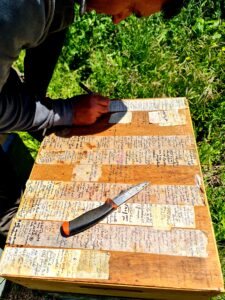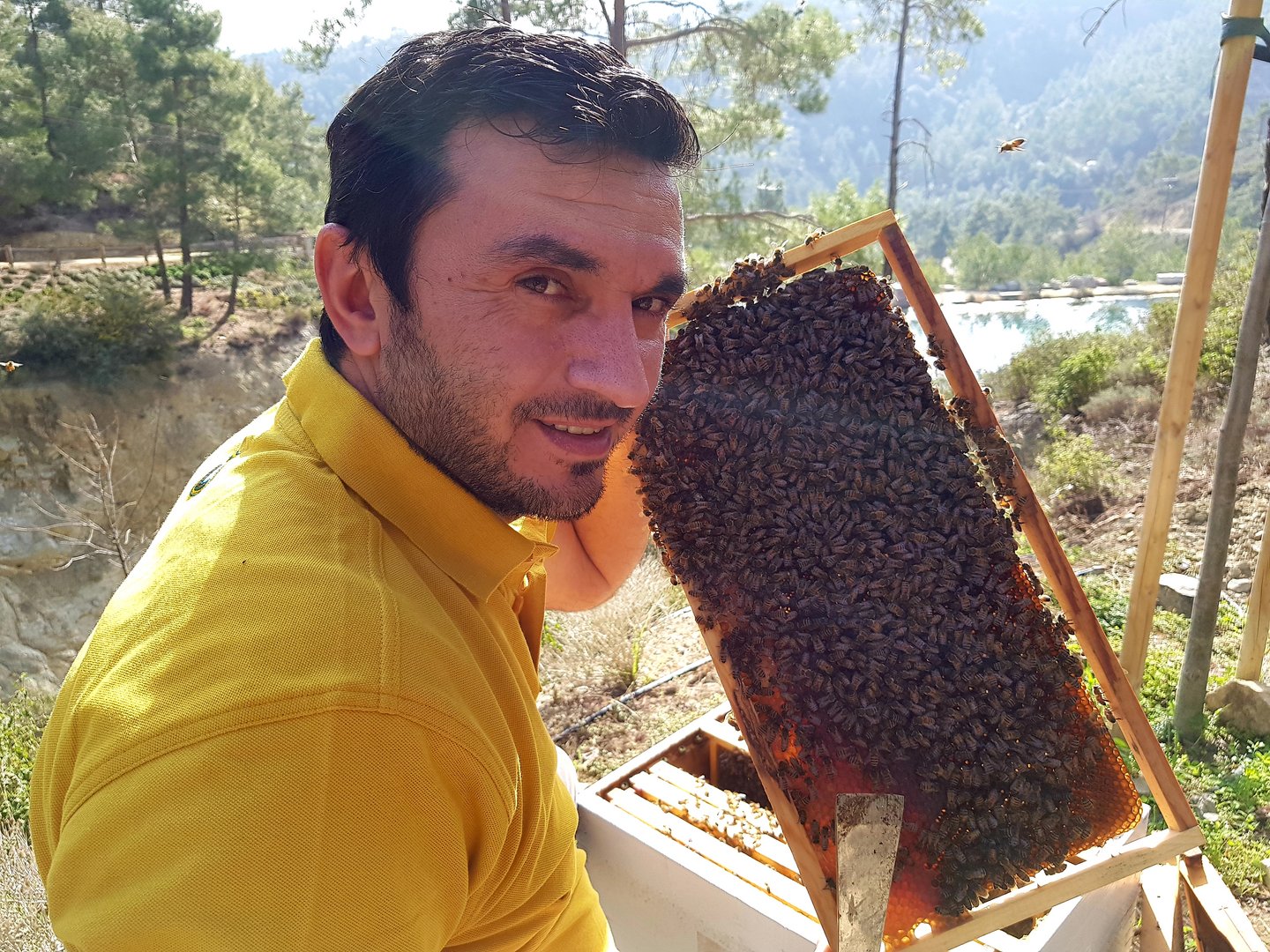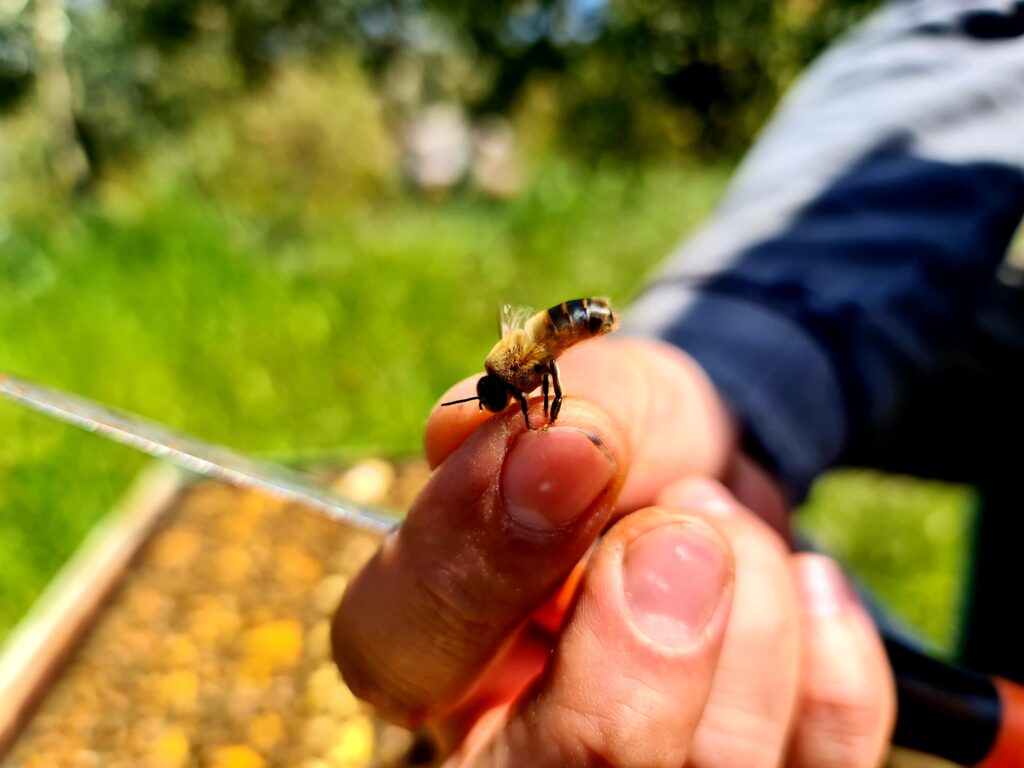Top quality honey is not easy to produce, especially in the face of local pesticide and antibiotic use and climate change
By Annette Chrysostomou
Projects such as the Achna bee park and the Larnaca honey villages have recently contributed to raising awareness of the important role that bees play in our lives.
It cannot be stressed too often how crucial these pollinators are to our food chain, and a new project is providing another opportunity to see what is possible, and what the pitfalls are.
With the help of world-renowned apiarist Dominique Micheletto who has 40 years of experience in beekeeping and studying bee psychology and his student Vladimir Kiourdjiev, Chrysantos Hadjiyiannis, a local business man with a passion for nature has started a new business near Galata, with the aim of producing top quality honey.
The new project has been carefully planned and executed, though climate change, pollution and pesticides are a hindrance, said manager and French environmental engineer Nicolas Netien who plans to bottle the first honey this week.
Getting it right is expensive and work intensive – and needs a good knowledge of bee behaviour and chemical analysis.
The answer to the challenge is full transparency, the engineer said. “We decided to produce the first totally traceable honey in the world, nobody has done this anywhere.”
Eighty per cent of honey which is for sale in supermarkets is fake and merely syrup, as the bees are fed sugar, he points out.
“We control all aspects, we build our own hives, use our own wax, and breed our own queens,” he explained. “We don’t cut any corners, and we move the hives all the time. Full transparency is the only way.”
Anybody who scans one of their jars can see the results of the many studies which have gone into the production of the honey.
The experience of the team even guarantees that the bees are bred to be gentle, and Netien says he and his partners do not need any protective clothing but work in T-shirts around the bees. This is achieved by selecting the best queen over many years and using insemination.
This might sound improbable, but it has been proven this method can work, as Beesource.com confirms. In fact, there are many breeds of bees, some more gentle than others, the website informs us, and breeding over time can significantly change their behaviour.
The bees Netien and his associates are working with what may be the best bred and well-behaved, but local threats abound.
The agriculture ministry announced earlier this year that any spraying of products that are toxic to bees during the flowering stage must be avoided, but few listen, Netien said.
“Farmers spray flowers, there is no reason for this, they say bees can spread disease which is absolute nonsense,” he exclaimed.
Then, antibiotics are everywhere in the food chain. Bees like to drink water which is not too clean, Netien expained, so they may drink from sources near animal farms, which are contaminated with manure containing antibiotics, which most farmers so easily dish out to their cows and pigs in this country.
Climate change is a third hazard which is hard to fight.
“It is tricky. The bees get confused and don’t know when to work. It gets hot and there is no humidity, and then suddenly it turns cold and there is a lot of humidity. It requires a deep knowledge of beekeeping.”
Back to the honey which is going to be produced by the new company, Apianthos. The product contains zero sugar as the bees are only fed their own honey over the winter.

This means Netien and his team can produce six distinctly different types of honey.
Apart from the Eucalyptus and orange varieties there is also thyme, cherry, plum and apricot, spring, summer and sumac, and the pollen analysis allows the producers to use such specific terms on the labels by law.
Chemical analyses also show what the problems are, such as the one regarding pesticides, which at times means a whole hive has to be destroyed when traces of toxicants are detected.
There is a bright side. When everything is done right, food diversity and the terrain assure the result can be amazing honey quality.
“Compared to Crete for example, the flavour of thyme is much better in Cyprus.”
For now, the honey will be available via online sales in Cyprus, but the idea is not just to make a profit, but to help others do the right thing.
“We have around 150 hives at the moment but we want to grow by sharing our philosophy. We are going to train other beekeepers and pull together resources,” Netien noted.
The website, currently under construction, will soon be made available here: www.apianthos.com








Click here to change your cookie preferences